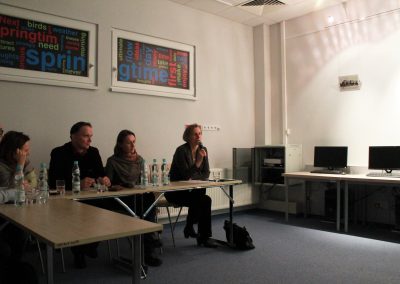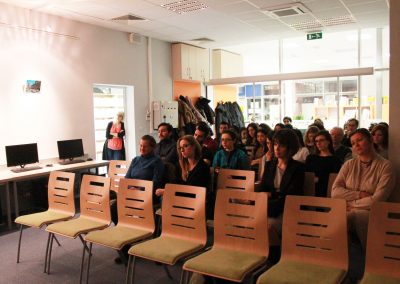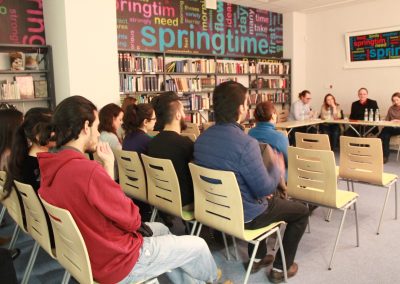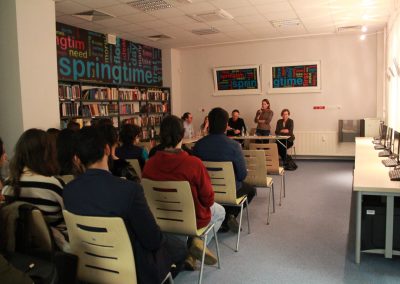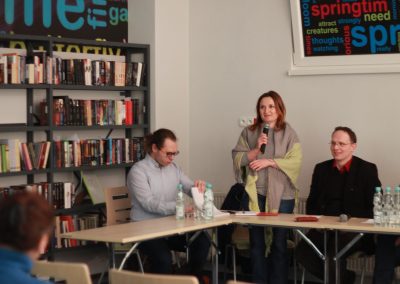On Wednesday we met in the Municipal Library Fil. 4 to participate in the debate entitled Gender ideology(ies): Man and woman – different by nature, inequal by society? We tried to find the answer to this question with our four guests: sociologists Borys Cymbrowski and Anna Czerner, philologist Katarzyna Molek-Kozakowska and biologist Elżbieta Pogoda.
We were aware that for most people the term gender is unfamiliar or even unfriendly, especially when someone is not a philologist or a social researcher, so we started with the basic questions: what gender is, how it exists in our respective fields of studies, and if there exists gender ideology. We can say that gender in general is about social consequences of being men, women or the others, because in the opinion of Elżbieta Pogoda even from a biological point of view there are more than only two sexes. And there is no evidence that one sex has an advantage over another.
In Polish media we encounter some false beliefs about the meaning of the word “gender”. But as Borys Cymbrowski mentioned it is a problem of confusion of nature with culture, because in the Polish language we have only one word (płeć) for gender and for sex. So some commentators confuse biological meaning with the cultural one. They accuse gender scholars of promoting a dangerous ideology which tries to convince people to choose their sex. As Anna Czerner said, the truth is that in the social sciences gender was a neutral category to analyse the relations between people in society, but unfortunately some institutions and politicians took one of the least popular topics in gender studies and used it as a basis to create and apply gender ideology as a political tool.
After that we focused mostly on language aspects within gender issues. Katarzyna Molek-Kozakowska indicated that for her it was easier to introduce herself in English than in Polish, because in Polish most names of academic professions have only a masculine gender, or even if it has a female gender, masculine forms sound more serious and more prestigious. But language is not a constant phenomenon – it is changing all the time. Twenty years ago we considered some female forms of words as strange, but today we take them for granted. We concluded that it is important to include more women-related forms to language, and it is one of the main catalysts of social changes in the public sphere.
We are really glad we could discuss it with you and with the citizens of Opole. We would like to thank you all for your presence and participation, and we hope to see you soon during another discussion. The aim of the whole debate was to clarify a little the problem of gender, but two hours is a short time when you are discussing such an important and complicated topic – so we treat this meeting only as a start. The debate is still open.

survey for international students
A student of ours is conducting a survey entitled Migration: Limited choice, Disappointment and the migrant identity and is inviting you to participate. The survey is directed at foreign students at the UO and is conducted as part of the student's Masters...
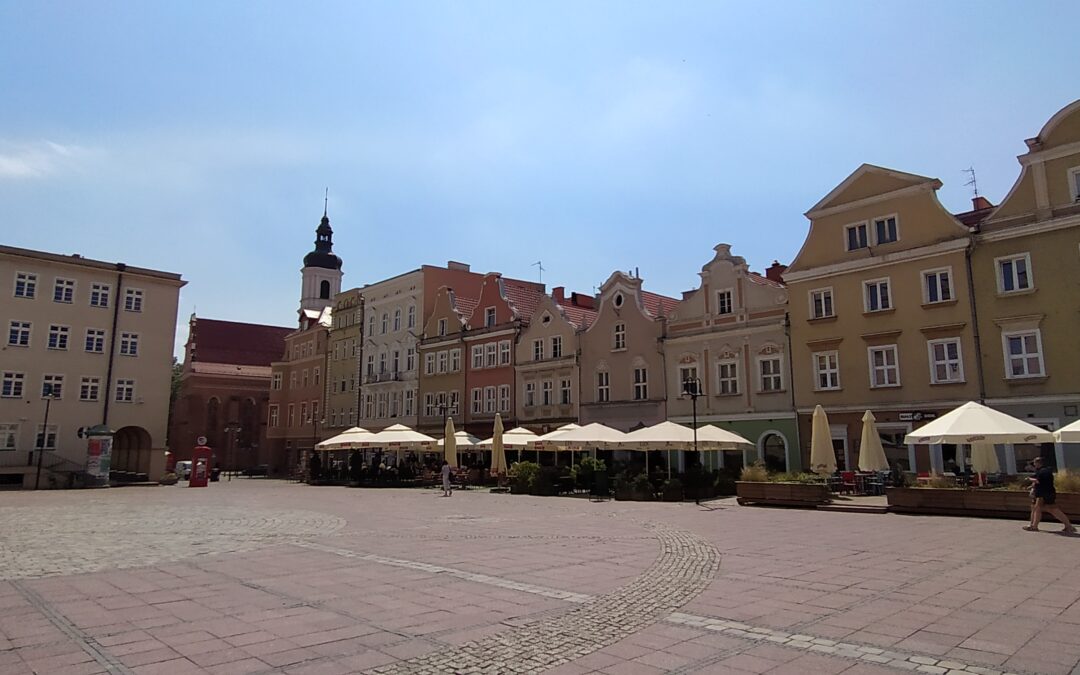
Tour de Pubs with Dominik
If you are a student who moved lately to Opole and you still don't know where to spend your free time with friends – Dominik lends you a hand! He is a student of psychology at the University of Opole who would like to help you with making your decissions easier!...

Carla’s amazing trip to Iceland
(February 2020)Today, Carla from Spain would like to tell us about her trip to Iceland! Carla is from Galicia, which is in the north of Spain. She has been studying Labor Relations and Human Resources. Carla spent in Poland six months. She said ''Erasmus was an...
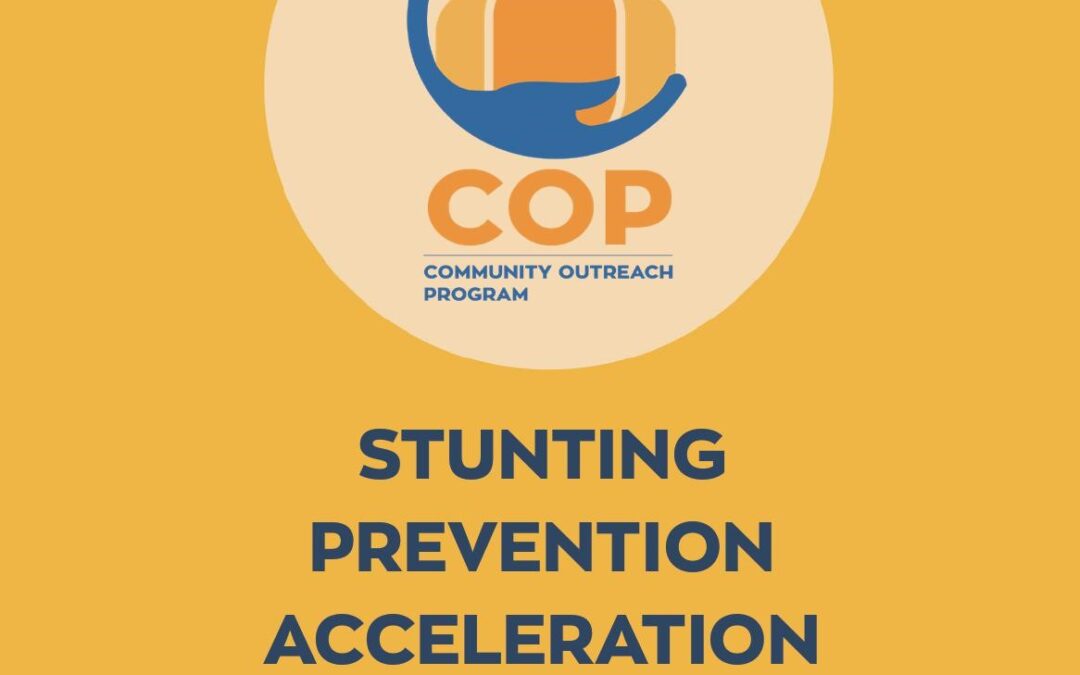
ASEA-UNINET International Community Outreach Program
Two highly reputable public universities in Indonesia, Universitas Airlangga and Diponegoro University, would like to invite all the UO students and staff to their first online community outreach program. The ASEA-UNINET International Community Outreach Program:...
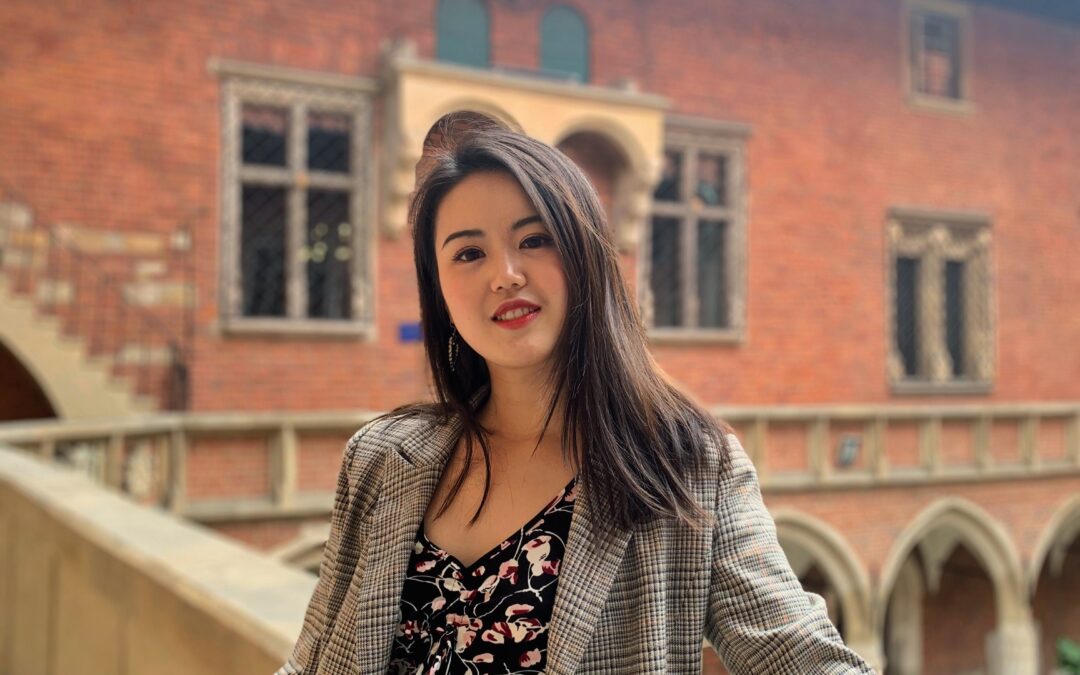
Story of Nomi
Today our guest is 21 years old Nomi from China. Her real Chinese name is WuYuting, but she called herself Nomi, because she really loves this name and also this name is easy for everyone to remember. In China she studied international logistics management which she...
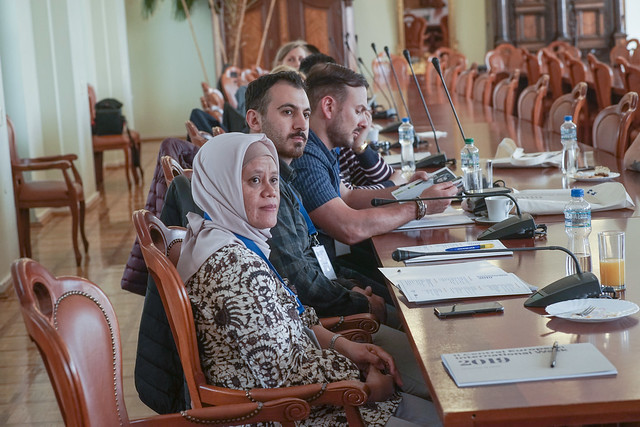
Erasmus+ at the University of Opole
University of Opole at the forefront of Polish universities in the statistics of the Erasmus+ programme The National Agency of the Erasmus + Programme has provided statistics on the implementation of agreements under Action 1 "Educational mobility" in higher education...
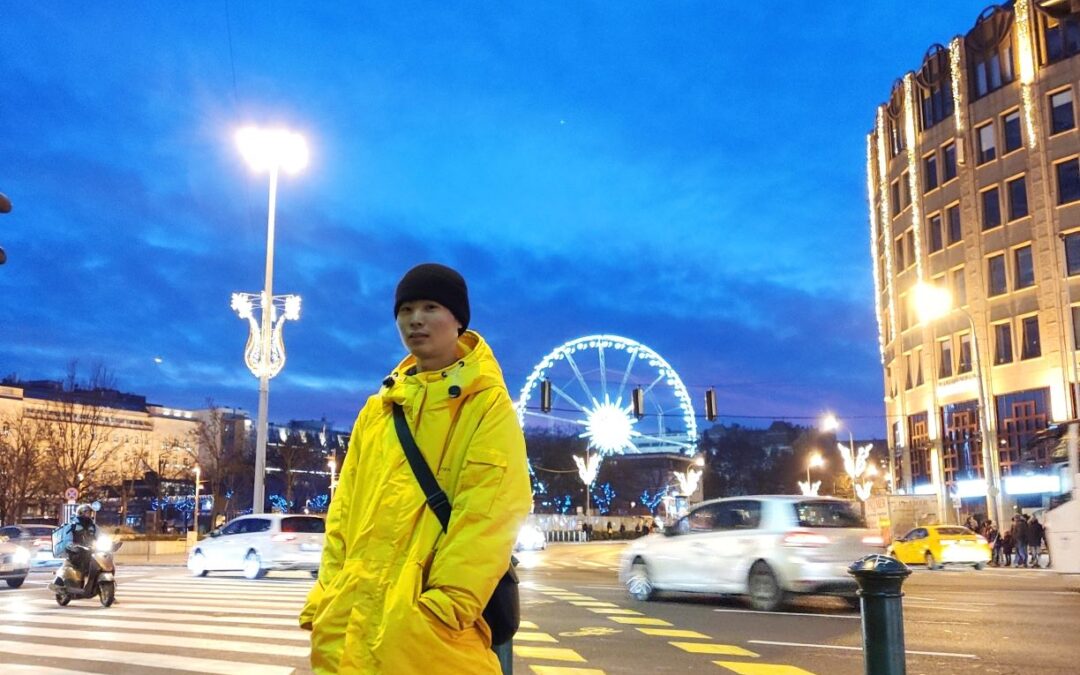
Story of Peng Zhenkang
Today our guest is 彭圳康 (Peng Zhenkang) from Sichuan Province in China. He is a 21-year old student of English in Public Communication on the second year at the University of Opole. He came to Poland one year ago and still has one year more to get his Bachelor's...
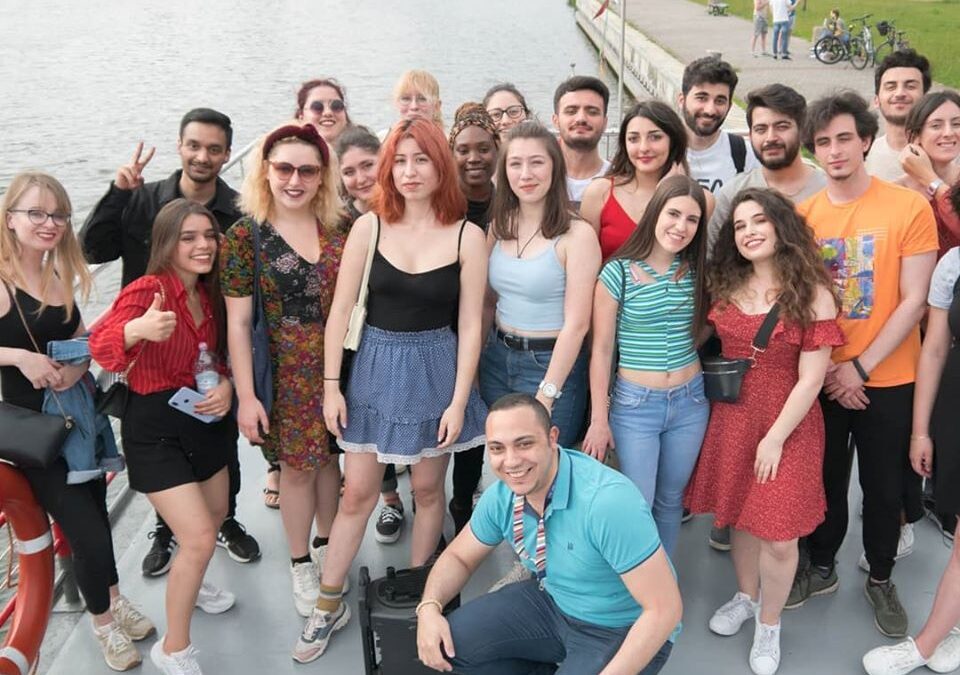
Erasmus+
💙💙💙💙💙 Here it is! Our promo video. What do you think about Erasmus+ at Uniwersytet Opolski? Share with us your experience!! Would you like to do your Erasmus at the University of Opole? Contact us!📧 erasmus@uni.opole.pl Thank you Julieth, Muhammet, Sergio and...

Julieth’s experience with art
(2020)Julieth Rodríguez Soronellas is a 4th year Fine Arts student at the University of Barcelona. She is currently living in Poland as she has been doing Erasmus at the University of Opole in the Faculty of Arts. She specializes in the field of sculpture. As she says...
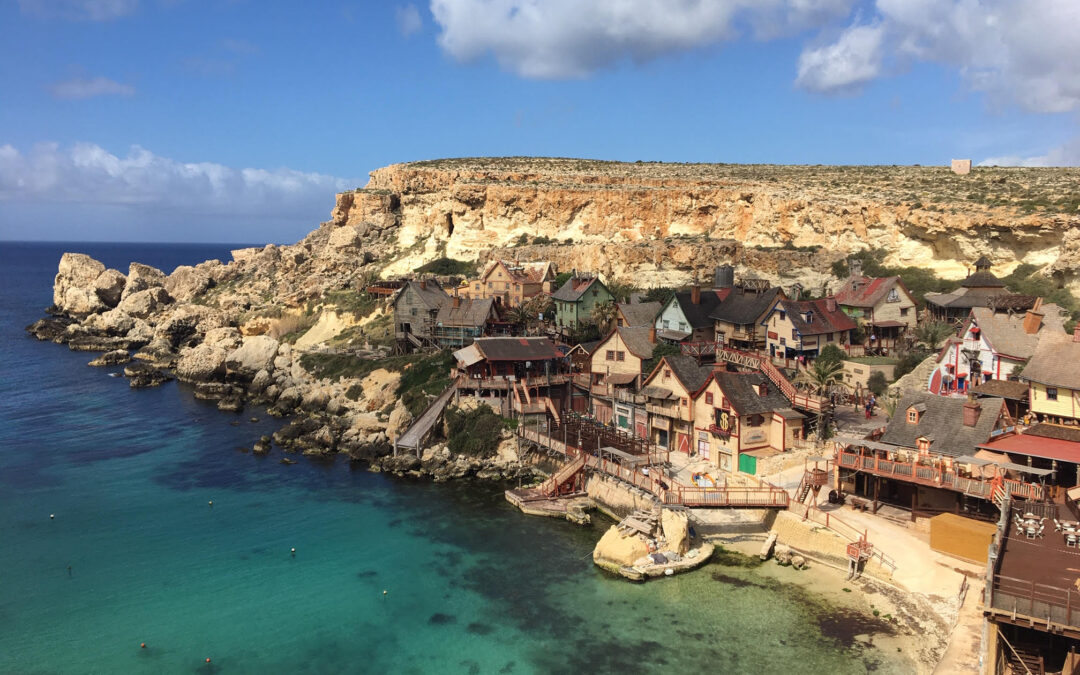
Malta with Sergio
(February 2020) Our next guest is Sergio from the north of Spain – Coruña. He decided to spend a year of his Erasmus in Opole. He is 22 years old and he studies Business Administration. As he said: ,,Erasmus is such an unforgettable experience. If you have a chance to...
